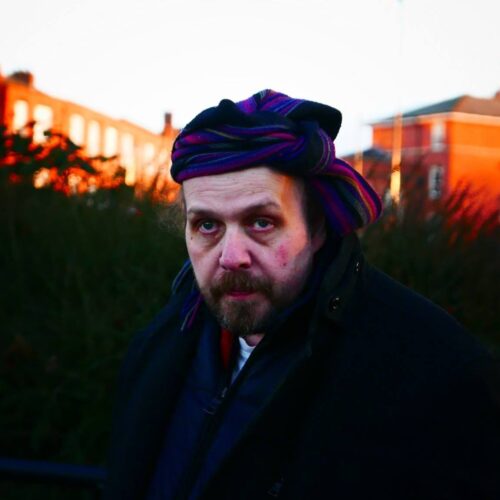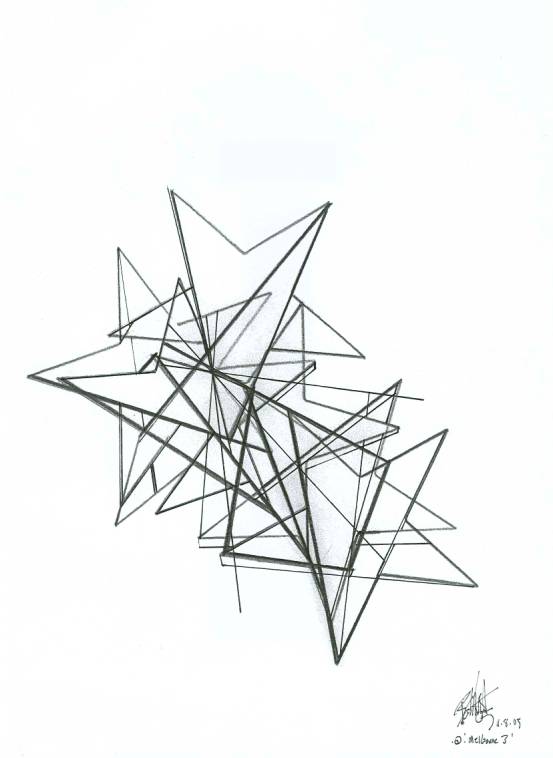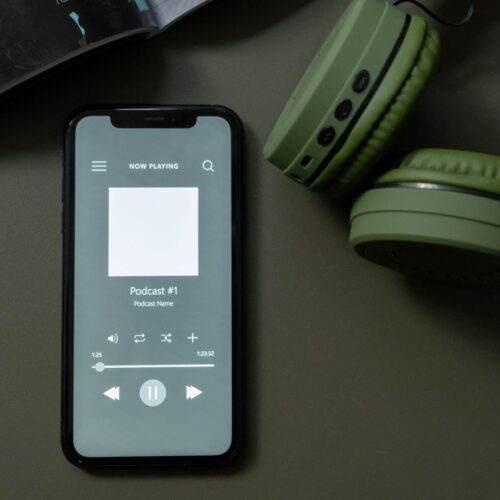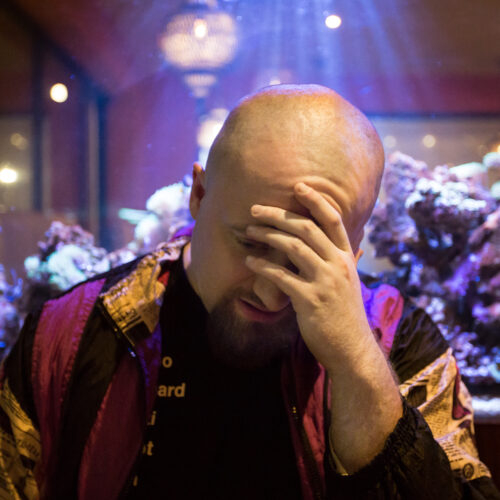
In conversation with: Julian Broadhurst
Could you tell me a little bit about your life as an artist? You are a percussionist and director of DCM. What is DCM?
Oh, a gift of a question! I was a visual artist before I returned to music – my first love and training. DCM kind of cuts right through my life in several guises. DCM now stands for Drowningcircle music. A long time ago, as a young visual artist (studying music), I wanted to create an artist’s group like Kandinski’s ‘Der Blaue Reiter’. I called mine ‘The Drowning’; I was about 18 at the time and it didn’t last, but the name stuck with me. I’m not really a man who lets go of ideas once they’ve taken.
I turned professional after a long illness and taking a late degree. I then added the word circle (hence, Drowningcircle) to reflect the geometric art I was involved with. You can access my artwork at
I was an OP Artist I sought to ‘tease’ the eye. It is not the eye that sees (the eye simply collects light); it is the mind that constructs the image and understands it. I used this as a foundation for my own work, which I called ‘Elementalism’ – a construction with geometric elements (after Euclid). I construct these images with black lines, as in architectural rendering of form. My lines speak of solidity and opacity and can fool the eye into various readings of it as an object. There are about a thousand pictures; I gave a disc of these to Stockhausen when we met in London. It may have been found amongst his papers!
In 1984, at 17, I taught myself to draw. I got myself thrown out of school and went across town to study music, the best choice I ever made! My parents were both musicians; music was woven into my life. After some very wild years – drinking in town and a long painful brush with cancer, I attended The University of Warwick and read Philosophy.
Immediately after graduating, I went straight back to art in 1997 at 30. Over the next 9 years I turned professional; the Liverpool Biennial (the largest festival of contemporary visual art in the UK), Berlin, Mayfair (London’s art heartland).
In 2006 I returned to music. I add the word ‘music’ to ‘Drowningcircle’ and we get ‘Drowningcircle Music’ DCM. Whilst I was working as a visual artist, I maintained my love of percussion. My hometown’s university (The University of Derby) gave me the opportunity to perform a recital in their summer season of 2006. Afterwards, an audience member said, “I’ve got a recording studio, would you like to use it?”.
A week later, my first album was recorded in a single afternoon ‘Inventions for Shamanic Drum’. I set up a studio and a small label, publishing myself and my collaborations as DCM. You can access the music at
https://julianbroadhurst.bandcamp.com/
I am the artist, producer, and director; did anyone ever have such creative freedom! A director is a term from the art world; someone who runs a gallery; a boss.

Are there pieces/releases of which you are particularly proud and why? Please provide a link for people to listen.
My first 7 albums are for percussion. Drums, not drum kit, is my speciality. My ‘Drum music’ – Dm. There is a second order of percussion; music for anything other than drums (bells, gongs, railings, etc.) which I refer to as ‘Metal Percussion music’ – MPm’. These are my first two of my five genres.
I say the core of my Drum work are the Twelve Drum Sonatas and the Six Sets of Inventions for Solo Drum. My second album is ‘Five Sonatas’ (the first five of my Twelve Drum Sonatas). The second sonata is very illustrative of technique. I say that’s essentially what a sonata is a display piece for the instrument and the instrumentalist; to test myself in front of the world. Could I give a resonant drum the power, to interest the mind of the listener for about 14 minutes?
https://julianbroadhurst.bandcamp.com/album/five-sonatas
Please, also listen to number 9 in the series. This was recorded in a redundant church, where I include a wooden pole against its natural resonance and clatter it to the floor at the end, as a deliberate act. I am very proud of it.
https://julianbroadhurstdrummusic.bandcamp.com/album/sonata-for-solo-drum-no-9
You will notice the piece is subtitled ‘- Rh 389’. I use ‘Rh’ as a catalogue reference for my music. My Art works have ‘Cw’ numbers, and my poetry is ‘Oe’.
My Sonata for Tuned Metal No. 1 is a good example of my ‘Metal Percussion music Genre’ – MPm.
https://julianbroadhurst.bandcamp.com/album/sonata-for-tuned-metal-no1
My third genre is ‘Phase music’ – Phm, which is basically studio tape manipulation. A good example of which is my Mechanical Clock music 1 and 2 – Rh 102 and 193
https://julianbroadhurstphasem.bandcamp.com/album/mechanical-clock-music
The fourth genre I call ‘Music for Strings, Electronics, and Percussion’ – MSEP’; me with orchestral instruments. A favourite example is my cello suite no 1 Never Not Actually Arriving.
https://julianbroadhurst.bandcamp.com/album/never-not-actually-arriving
My fifth genre is electronic music – ‘Em’. Two good examples are XAU and Cold Outer Worlds.
https://julianbroadhurst.bandcamp.com/album/xau
https://julianbroadhurst.bandcamp.com/album/cold-outer-worlds
Recently, the British Library asked you to prepare an edition of your complete works? How did that come about?
Yes, the British Library, they rang me:
“Hello, we’re the British Library.”
“Oh yes” I said, like this happens all the time.
“We’ve been listening to your music, but we haven’t got any in our collection.” The National Collection, that is.
“Really?” I said. “What would you like?”
“Well… all of it!”
Those exact words were life changing. I had written basic notes on my music already, but not of the quality I would like if my music were to be discovered in some far distant future. It was like being back in hospital, years ago, when dying at the age of 19 was a real possibility and there would be nothing left. I had work to do. What I gave to the British Library, the future would have. Work with us, they said, and we’ll give you government-level security. This conversation happened in 2017, and it has taken 5 years to develop the format I now use with my Bandcamp albums. So far, I have 95 albums from my total l of 144; far too many! And this does not include my work in collaboration with other musicians (Jim Tetlow; cellist David Dhonau, flautist Markus Wenninger, percussionist Walt Shaw, pianist Marina Vesic, flautist/vocalist Maureen Anderson and others), all of which are published on the DCM label and are available to hear for free. This is the work the British Library will eventually want – and I hope I am able to finish it. It’s too late to change who I am now. I said to myself “What if nobody ever reads this stuff, what the hell was it all for?” I answered, “to complete my expression – nothing more”.
At Open College of the Arts, a lot of our students use the student forums. They are very supportive of each other, and it is a great place for them to listen to each other’s work, ask/answer questions etc. You have created a similar community on Facebook, which I absolutely love, where professional composers/performers can support each other and share things. Why did you decide to start the group?
Yes, you’re referring to ‘IF-DCM’ a short form of ‘The DCM International Forum for Contemporary Music’. A long time ago, I created a group just called ‘DCM’ after my fledgling label, initially for the people I worked with and published on the label. I came from the art world, and I wanted a place to discover the music world. So many people asked to join, and it got messy, although one person described it as a ‘Composer Heaven’. I then started IF-DCM as a private forum, exclusively for the contemporary professional – composers, performers, and academics. Oh, did that make a difference! A small piece of the real music world – serious music in a popular place.
I want people to post about their musical lives, about composition, their works, about the nuts and bolts. I encourage people to think of themselves as part of music history. To take documentation seriously. I can do this because I really love the work of others. I have made a lot of friends there. When someone new joins, I like to post articles etc. so the community knows about them, and they hit the ground running. In the community, people usually have many friends in common with me and in the group already, and I encourage people to network; to share their life and their music. Everyone in the group (including you, Ben!) carries the title ‘New Music Hero’ after their names NMH by default. To borrow a line “Together we are beautiful”.
|
|







A really interesting interview. Julian Broadhurst is a fascinating character, and I really like all his ideas! I don’t know his music, so will look forward to listening to the links provided.